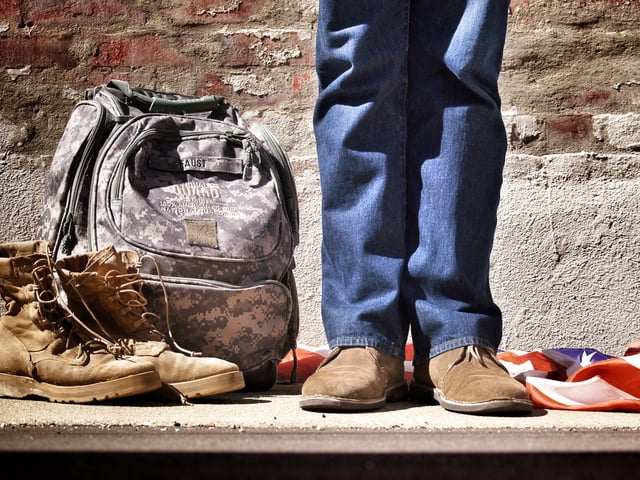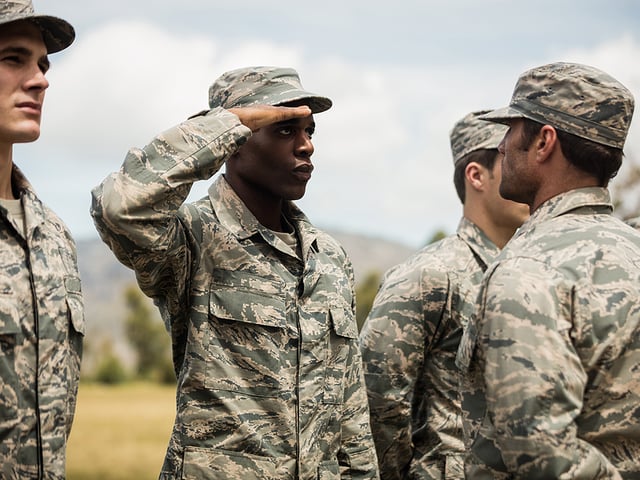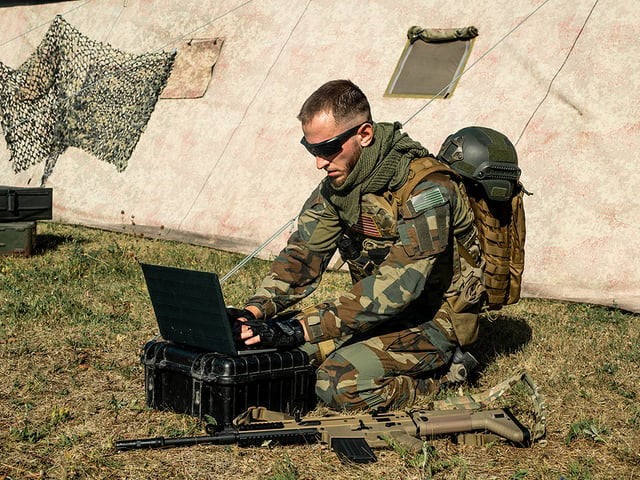
Making it Into the Military: Can You Retake the ASVAB?
If you have your eye on a job in the Armed Forces, you’ll have to take the ASVAB test first. That’s why over one million military applicants and students take the ASVAB every year.
The purpose of the ASVAB exam is not, specifically, to demonstrate your intelligence. Instead, it’s to determine which military branch you’re best suited for and the roles you could play within that branch. That said, it will require you to show off your knowledge.
What happens if you don’t get a passing score the first time around? Can you retake the ASVAB? That’s what we’re here to talk about today. Read on to learn more about how many times you can take the ASVAB and what to do to pass the exam.
What Is the ASVAB Exam?
ASVAB is an acronym standing for Armed Services Vocational Aptitude Battery. It is a requirement for anyone who wants to enlist in any of the military’s five branches (Army, Air Force, Navy, Marine Corps, and Coast Guard) or anyone who wants to become a commissioned Army or Marine Corps officer. Let’s take a closer look at some of the basics about the ASVAB that you should know before you sign up for your test date.
What Subjects are on the ASVAB Exam?
There are several subjects on the ASVAB with questions ranging in difficulty. These subjects include:
-
General Science
-
Arithmetic Reasoning
-
Word Knowledge
-
Paragraph Comprehension
-
Mathematics Knowledge
-
Electronics Information
-
Auto Information
-
Mechanical Comprehension
-
Assembling Objects
Remember that the ASVAB functions as both an eligibility and career placement test. Many of these subjects will not count toward your score and, instead, help to determine which of the many important military roles you might be suited for.
What Is the Format of the ASVAB?
Depending on your region’s availability, you may choose between a computerized version of the ASVAB (CAT) or a physical, on-paper version of the ASVAB (P&P). The number of questions in each section will vary depending on which version of the test you take. For example, there are 15 General Science questions on the CAT ASVAB and 25 on the P&P.
Regardless of your version, all questions will be asked in multiple-choice format with four possible answers. You are not penalized for providing an incorrect answer to any of these questions, so it is recommended that you try to answer all of them, even if you are unsure.
Who Is Eligible to Take the ASVAB?
Before taking the ASVAB, you must talk with an official military recruiter. Not everyone is eligible to join the Armed Forces due to factors including age, health, and criminal record. If you do not meet the initial eligibility criteria, there is no reason to take the ASVAB.
After taking the ASVAB and passing, you will also be given a physical. The physical will demonstrate your strength, cardio endurance, and more. Some test-takers will have their physical on the same day they take the ASVAB exam, so make sure you know what to expect before showing up on your scheduled exam date.
Can You Retake the ASVAB?
Though these numbers haven’t been reassessed for quite some time, research suggests that one in four test takers do not get a passing score on the ASVAB. The good news is that you can take the ASVAB more than once. If you don’t pass the first time, you can sign up to retake it.
What Is Considered a Passing Score?
A passing score will depend on your level of education and the branch you hope to join. Unlike tests you have taken in the past, your percentage score will not indicate how many questions you answered correctly. Instead, it will reveal how your results compare to a standard representative sample of similar test-takers. Scores range from 1-99, with the breakdown of the minimum possible scores to qualify for military service is as follows:
-
Army: 31 for high school graduates and 50 for GED or HiSET holders
-
Air Force: 36 for high school graduates and 65 for GED or HiSET holders
-
Coast Guard: 36 for high school graduates and 47 for GED or HiSET holders
-
Marines: 31 for high school graduates and 50 for GED or HiSET holders
-
Navy: 35 for high school graduates and 50 for GED or HiSET holders
How Is the ASVAB Scored?
As we mentioned earlier, some of the subjects on the ASVAB are used for career placement. These sections don’t count toward the score determining if you are eligible to serve in the military.
The sections that do count toward your score include Word Knowledge, Paragraph Comprehension, Arithmetic Reasoning, and Mathematics Knowledge. Together, these four sections make up the Armed Forces Qualifications Test, which is why you’ll often hear the ASVAB test score described as your AFQT score.
When Can You Take the ASVAB?
If you do not pass the ASVAB the first time, you can retake it in one month. If you don’t pass the third time, you will have to wait six months to take it again—and that six-month waiting period will be in place for every subsequent exam date you need to schedule after that.
That said, the ASVAB is offered year-round across the nation. When you’re ready to sign up, you shouldn’t have difficulty finding a test date and time that work for your schedule.
Why Is a High Score Ideal?
You might think that the minimum score you need to become eligible for military service is low enough that you don’t need to study. However, we urge you to prepare for the ASVAB like any other important test, so you don’t risk limiting your military career options.
How Can You Get a Great ASVAB Score?
To study for the ASVAB test, start with ASVAB practice exams. Taking practice tests will give you a sense of what knowledge and skills you already have and help you focus your efforts on the areas you’re struggling with.
Create a Study Schedule
Because there are four primary scored sections on the ASVAB exam, we encourage you to start studying at least four weeks in advance. Be sure to review the material in small blocks (one to two hours at a time) and take at least one full day off each week to avoid burnout.
If you know what kind of military jobs you are interested in before taking the ASVAB, it’s worth talking with a recruiter to see which sections you should focus on in addition to the AFQT sections.
Use the Right Tools
The key to successful studying is comprehending the material and committing it to memory so that you can pull out what you know on test day. Study guides and practice tests are a great way to become familiar with the kinds of questions you’ll encounter on the ASVAB. In addition to these valuable tools, we recommend taking handwritten notes and using flashcards for the ASVAB to increase and test your recall.
Stay Relaxed and Rested
The ASVAB is an important test, but try not to let the pressure of it take you from a motivated state to a stressed state. Believe it or not, stress and anxiety can change the way your brain stores and accesses memories. That means that studying while stressed can limit the amount of information you store in your brain, and testing while stressed can restrict how much stored information you can recall at the moment.
If stress is getting in the way, try breaking up your study sessions with a few mindful activities to reduce stress. You can find tons of free mindfulness resources on websites like YouTube, so don’t hesitate to take advantage of them! Methods include guided meditation, breathing exercises, yoga, and more.
Union Test Prep Is Here to Help You Pass the ASVAB
If you’re getting ready to take the ASVAB, you probably have many questions. What counts as a passing score? Can you retake the ASVAB if you don’t achieve a passing score the first time? The good news is that you can take the ASVAB test multiple times to achieve a passing score. The better news is that we have plenty of free online tools to help you pass the first time around.
For ASVAB success, check out our full suite of ASVAB study tools. By making an account, you can study, pause, and return to your studying materials at any time. Get started today!
Keep Reading

Armed Services Vocational Aptitude Battery Blog
What is the ASVAB Test?
The Armed Services Vocational Aptitude Battery, known as the ASVAB, is …

Armed Services Vocational Aptitude Battery Blog
Military MOS Codes
Military Occupational Specialty (MOS) codes are an integral part of the…

Armed Services Vocational Aptitude Battery Blog
U.S. Army Height and Weight Standards for Females
The U.S. Army’s commitment to maintaining a robust, physically fit, and…